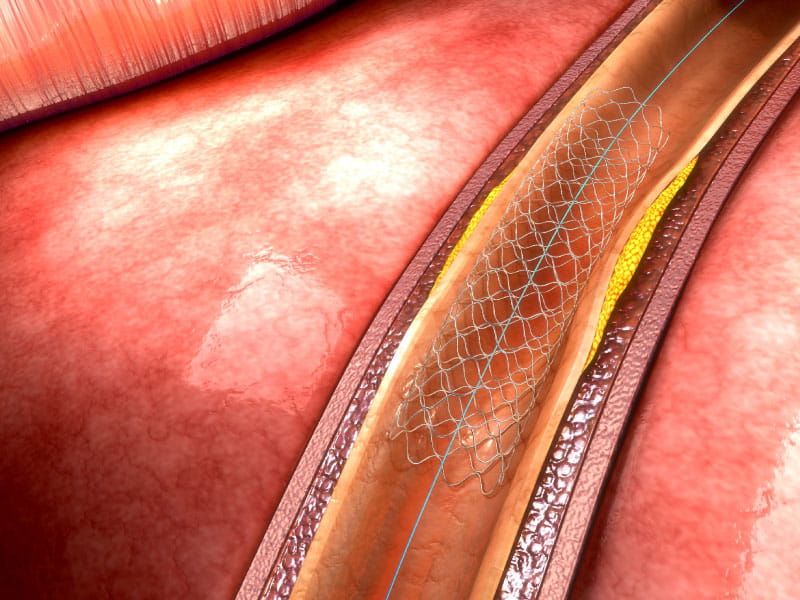Artificial molecules could lead to better heart stents
By American Heart Association News

Artificial molecules that target artery-obstructing cells while allowing others to heal could lead to new treatments for people who receive stents, a study has found.
Stents – small, wire mesh tubes – are inserted to prop open blocked arteries in people at risk of heart attack or stroke. Some stents are coated in drugs that help keep blood vessels open by inhibiting the abnormal growth of what are called vascular smooth muscle cells.
The medicines in these drug-eluting stents, however, also can impede the healing of endothelial cells that line the inner surface of the blood vessel. Complications can be reduced by using aspirin and other anti-clotting drugs, but the medicines can have side effects.
"Our study suggests safer and more efficacious drugs may be developed for use with drug-eluting stents," William Thiel, lead author of the study and an assistant professor of internal medicine at the University of Iowa in Iowa City, said in a news release.
The preliminary research was presented Wednesday at the American Heart Association's Vascular Discovery Scientific Sessions in Boston.
The study tested the ability of artificial molecules – specifically, artificial RNA, or ribonucleic acid – to target abnormal vascular smooth muscle cells while sparing endothelial cells, much like weed killers that target weeds but not grass.
In laboratory tests, one of the molecules decreased vascular smooth muscle cell growth, while the other triggered the death of these cells to a greater extent than a drug often used in drug-eluting stents. Neither molecule affected endothelial cells.
The researchers are now studying the mechanisms of how the RNA molecules did their selective work.
If you have questions or comments about this story, please email [email protected].




